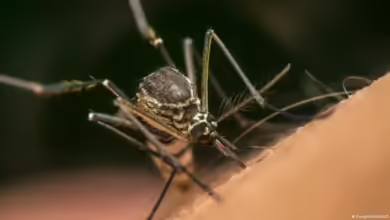Will Humans Be Affected by the Bird Flu Virus Discovered in Cow Milk Supplies?
Paris: Although scientists believe there is minimal danger from food contamination, the finding of traces of the avian flu virus in pasteurized cow milk in the United States has raised concerns about whether the illness may transmit to people.

During the course of a significant investigation, US officials revealed on Tuesday that they had found traces of the avian flu virus in the cow milk supply; nevertheless, the samples most likely presented little danger to human health.
What are our current knowledge bases?
Authorities reported that a human case of highly pathogenic avian influenza (HPAI) with moderate symptoms had been infected, and the virus had spread throughout dairy cow herds across the United States.
During the present outbreak, the H5N1 form of HPAI has killed millions of chickens, yet the infected cows have not been seriously ill.
According to the US Food and Drug Administration, virus particles were found in “milk from affected animals, in the processing system, and on the shelves” during a nationwide assessment.
Although the heat of the pasteurization procedure rendered the virus inactive, the samples were nevertheless subjected to a quantitative polymerase chain reaction (qPCR) test, which may identify genetic material leftover from the infection.
How did it come about?
The A/H5N1 form of bird flu originally surfaced in 1996, but since 2020, the number of infected bird populations has skyrocketed, and an increasing number of mammals have also fallen victim to the virus.
Experts were taken aback when cows and goats were added to the list in March because, up until then, these species had not been thought to be susceptible to this particular virus.
“A new H5N1 virus has mixed with local viruses in the United States and can multiply very quickly in the udder of a cow,” said Jean-Claude Manuguerra, the head of the Pasteur Institute in Paris’s department of environment and infectious risks.
However, despite the fact that the current wave of H5N1 has killed millions of birds, afflicted cows have not developed major illnesses.
Risk of a pandemic?
Even if the bird flu virus manages to infect a person, most researchers believe there is little likelihood of widespread contamination based on tests completed so far.
Is it concerning if there are signs of a virus in cow’s milk? No, but it’s not good news that another animal may get infected with this virus,” virologist Bruno Lina of the hospital in Lyon, southeast France, said.
Random instances might occur in either people or animals. However, there hasn’t been a significant viral mutation that would raise the likelihood of a pandemic since three or four months ago, the expert said.
Threat to human health?
An individual who worked on a dairy farm in Texas and was exposed to cattle earlier in April was recuperating from bird flu, according to US officials.
Only an eye infection was present, and the symptoms were minor after close contact with a cow.
“What we know is that the virus can cause in humans an infection in two specific places: an eye infection, which is mild, or in the pulmonary alveoli, the deepest parts of the lung,” said Lina.
In the latter scenario, the infection may become fatal; of the approximately 900 instances of H5N1 that the World Health Organization has recorded in humans over the last 20 years, half have resulted in death.
However, the hazards are almost nonexistent when pasteurized milk is consumed, even in the event that virus remnants are discovered.
“Pasteurization destroys the virus even if it doesn’t eradicate every trace of its presence,” Lina said.
How about unpasteurized milk?
While certain nations, like France, like eating raw chesses, experts point out that the manufacturing process is well regulated in terms of hygiene.
Has anybody ever consumed non-pasteurized milk tainted with H5N1 and gotten sick via the mouth or digestive system as a regular method of consumption? It has never been proven,” Lina said.
Furthermore, according to Manuguerra, the most recent virus strain found in the US differs from those that are already circulating in Europe.
Furthermore, he said that no H5N1 infections had been discovered in French cows, for instance.
“The warning has been sounded; there is extra vigilance, and these viruses can mutate so rapidly that you have to keep an eye on them,” he said.







